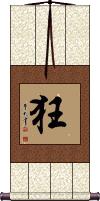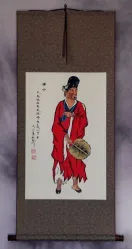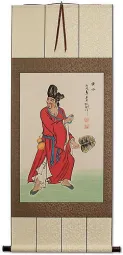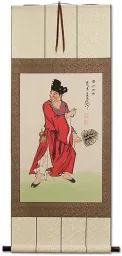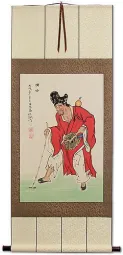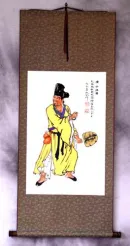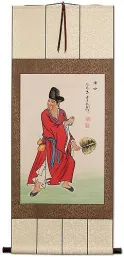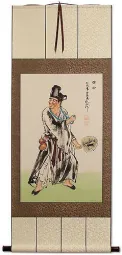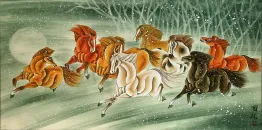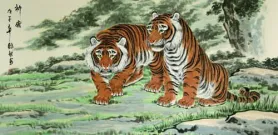Many custom options...
And formats...

Not what you want?
Try other similar-meaning words, fewer words, or just one word.
Feel free to email me with your request. If it's easy, I'll translate it for free and add it to this database of calligraphy for you.
Crazy Mad Wild in Chinese / Japanese...
Buy a Crazy Mad Wild calligraphy wall scroll here!
Crazy / Mad / Wild
狂 is a single character that means “crazy” in Chinese, Japanese Kanji, and old Korean Hanja.
狂 means crazy, unrestrained, lunatic, insane, confused, deranged, wild, or mad.
This can also refer to an extreme enthusiast (like a football fan). But then, it can also refer to a person possessing a mental abnormality.
In some contexts, this can mean conceited (it probably won't be read that way on a wall scroll).
A warning: 狂 is an odd selection for a wall scroll. You should only order this if you plan to bewilder or confuse those who see it. It kind of says something about you, something that most native Asian people will not view in a good light.
This in-stock artwork might be what you are looking for, and ships right away...
Ji Gong
The Mad Monk Of China
Wall Scroll
Discounted Blemished
Gallery Price: $63.00
Your Price: $35.00
Gallery Price: $400.00
Your Price: $158.88
Not the results for crazy mad wild that you were looking for?
Below are some entries from our dictionary that may match your crazy mad wild search...
| Characters If shown, 2nd row is Simp. Chinese |
Pronunciation Romanization |
Simple Dictionary Definition |
狂 see styles |
kuáng kuang2 k`uang kuang kyou / kyo きょう |
More info & calligraphy: Crazy / Mad / Wild(suffix) (1) (some type of) enthusiast; (suffix) (2) someone possessed of a (certain kind of) mental abnormality Deranged, mad, wild. |
狂う see styles |
kuruu / kuru くるう |
(v5u,vi) (1) to go mad; to lose one's mind; to go crazy; to go insane; (v5u,vi) (2) to get out of order; to go amiss; to malfunction; to become imprecise; (v5u,vi) (3) to go wrong (of a plan or expectation, etc.); to fall through; to get mixed up; (v5u,vi) (4) to go crazy (over someone or something); to get enthusiastic; to go wild |
The following table may be helpful for those studying Chinese or Japanese...
| Title | Characters | Romaji (Romanized Japanese) | Various forms of Romanized Chinese | |
| Crazy Mad Wild | 狂 狂 | kyou / kyo | kuáng / kuang2 / kuang | k`uang / kuang |
| In some entries above you will see that characters have different versions above and below a line. In these cases, the characters above the line are Traditional Chinese, while the ones below are Simplified Chinese. | ||||
Successful Chinese Character and Japanese Kanji calligraphy searches within the last few hours...
